- الصفحة الرئيسية
- منشورات من الألف إلى الياء
- The United Nations World Water Development Report
The United Nations World Water Development Report
These reports annually focus on multiple strategic water issues. They aim to provide decision-makers with tools to implement sustainable use of our water resources. They include various regional aspects, hotspots, examples and stories, which make them relevant to a broad range of readers in various regions of the world. The reports were originally triennial and the first four editions were launched in conjunction with the World Water Forum in 2003, 2006, 2009 and 2012. Over time, the reports became increasingly facts-based and acquired a more specific thematic focus.
ISSN (online):
27070816
تكرر:
Annual
Filter :
Sustainable Development Goals
موضوع
تاريخ النشر

The United Nations World Water Development Report 2025
Mountains and Glaciers: Water Towers
مارس ٢٠٢٥
كتاب
The water resources we receive from mountains are literally melting away before our eyes. Mountains and alpine glaciers – often referred to as the world’s ‘water towers’ – are becoming increasingly vulnerable to climate change and unsustainable human activities threatening the water resources upon which billions of people and countless ecosystems depend. The United Nations World Water Development Report 2025 – Mountains and glaciers: Water t Read More
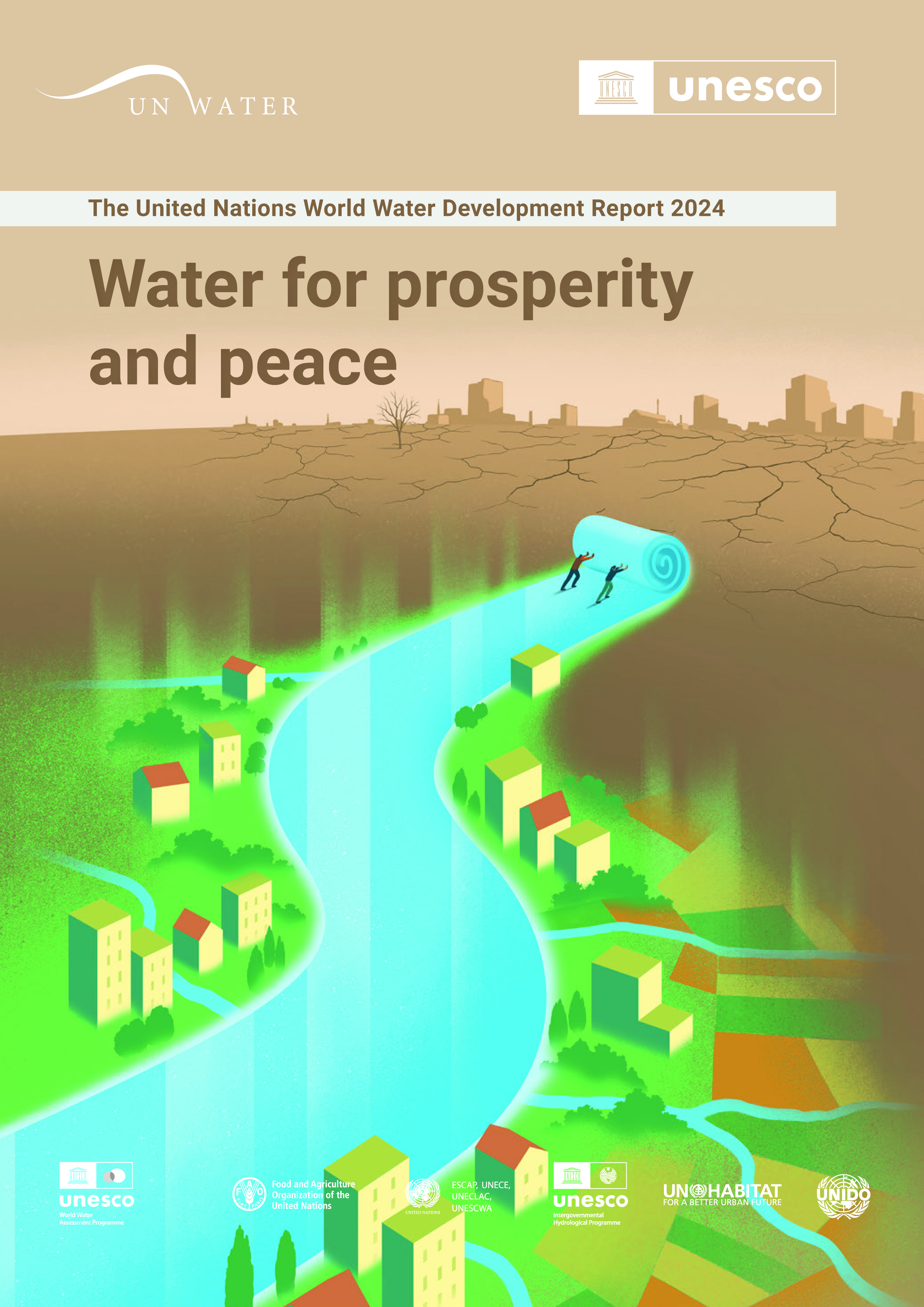
The United Nations World Water Development Report 2024
Water for Prosperity and Peace
مارس ٢٠٢٤
كتاب
Water nurtures prosperity by meeting basic human needs supporting health livelihoods and economic development underpinning food and energy security and defending environmental integrity. Water influences the economy in many ways and global trade dynamics and market adaptations can have direct repercussions on the water use of regional and local economies. The water-related impacts of conflict are multi-faceted and often indirect such as Read More
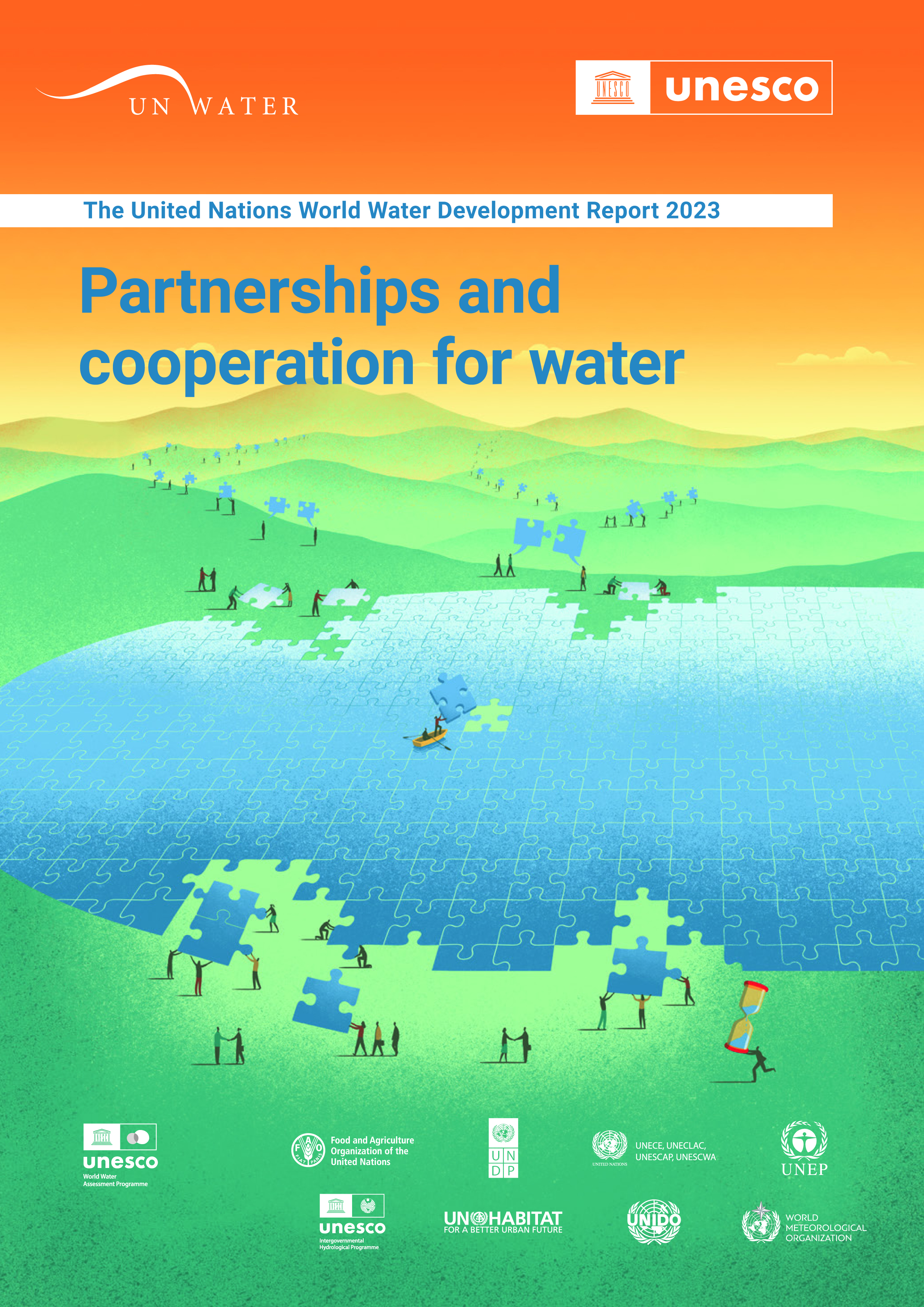
The United Nations World Water Development Report 2023
Partnerships and Cooperation for Water
مارس ٢٠٢٣
كتاب
This publication describes how building partnerships and enhancing cooperation across every dimension of sustainable development are essential components to accelerating progress towards realizing the human rights to water and sanitation. Partnerships and cooperation take place in almost any water-related endeavour and water resources management has a long history of experience with partnerships both good and bad. This report rev Read More
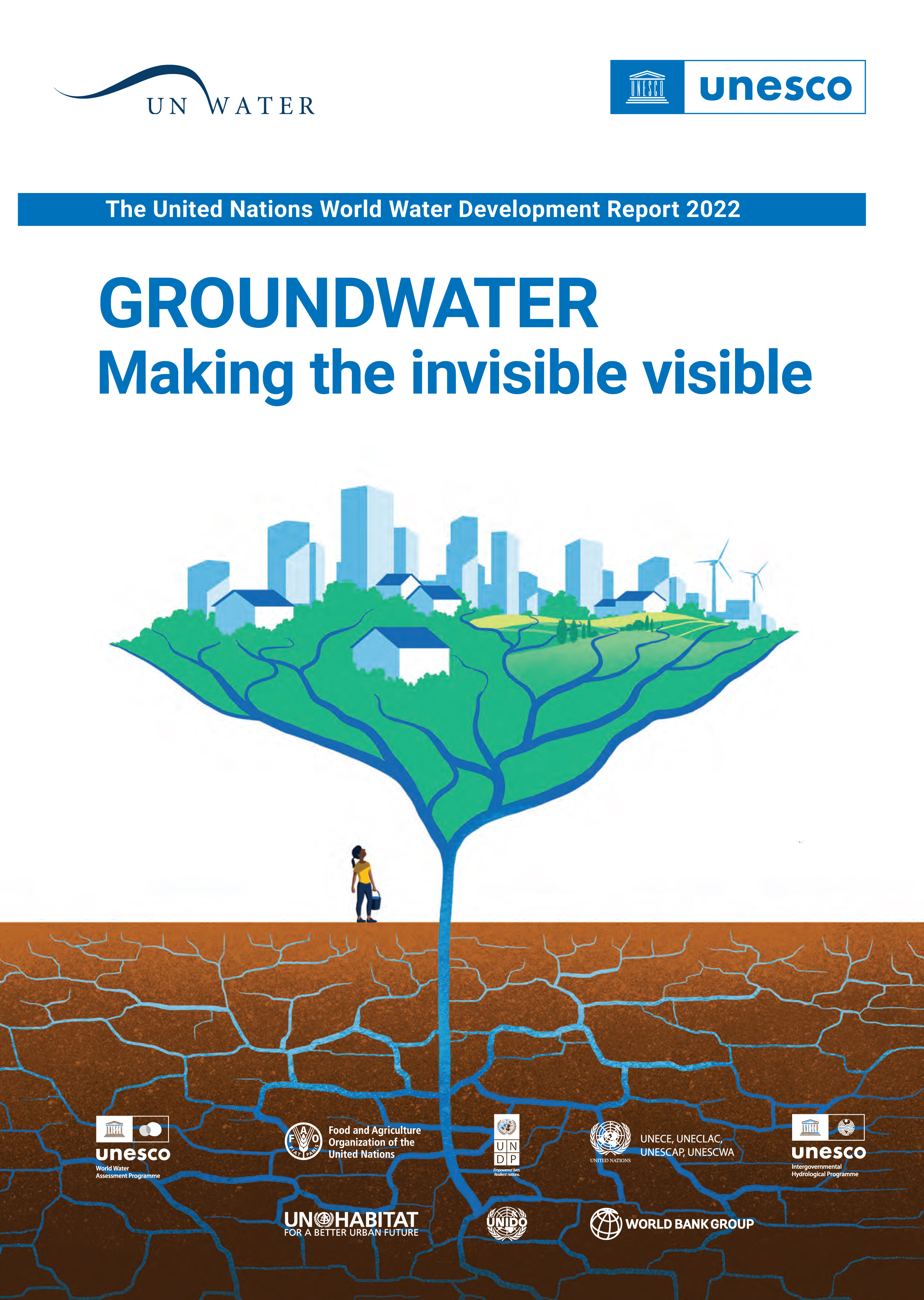
The United Nations World Water Development Report 2022
Groundwater: Making the Invisible Visible
مارس ٢٠٢٢
كتاب
Accounting for approximately 99% of all liquid freshwater on Earth groundwater has the potential to provide societies with tremendous social economic and environmental benefits and opportunities. However this natural resource is often poorly understood and consequently undervalued mismanaged and even abused. In spite of its overall abundance groundwater remains vulnerable to over-exploitation and pollution both of which can have devastating eff Read More
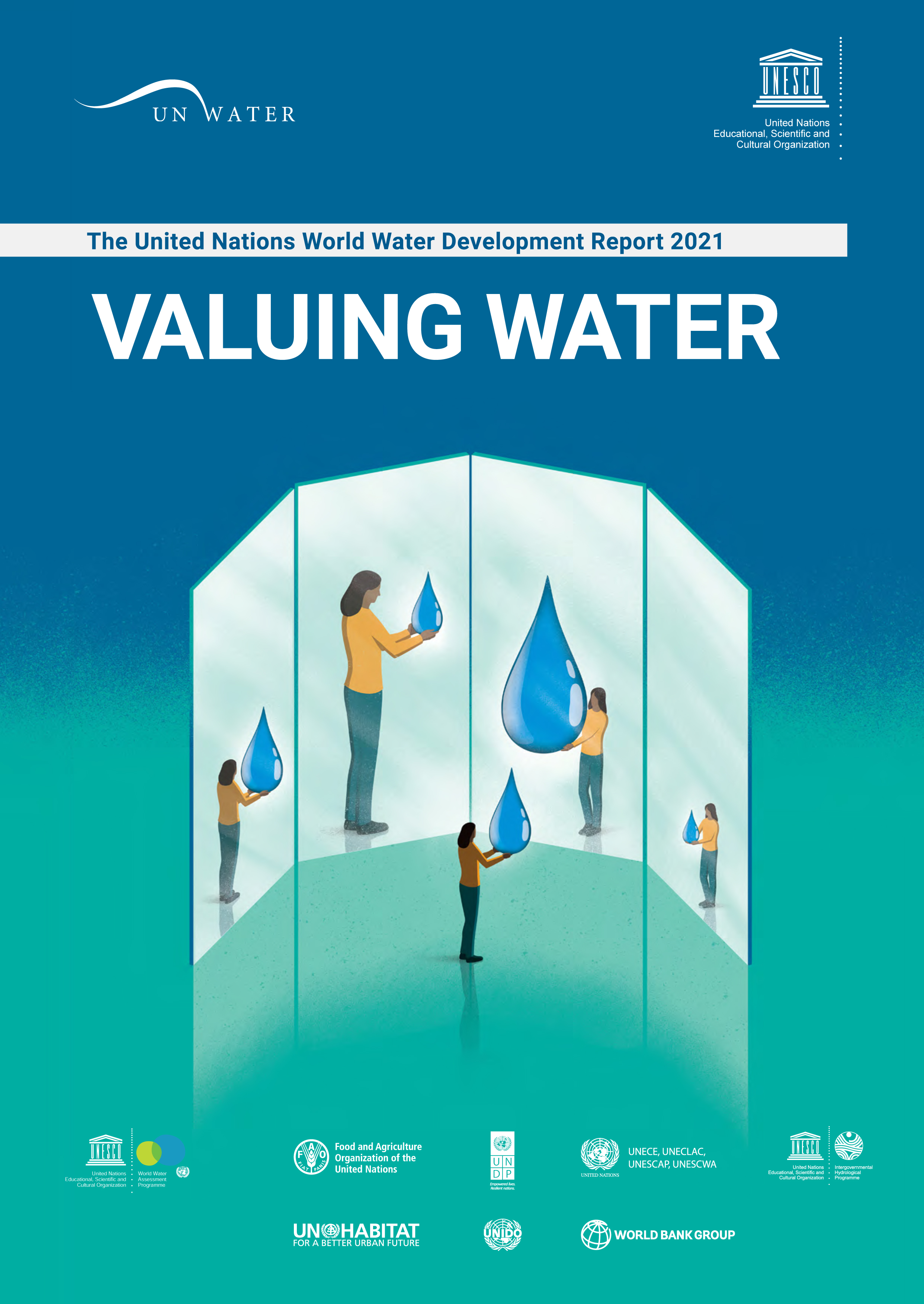
The United Nations World Water Development Report 2021
Valuing Water
مارس ٢٠٢١
كتاب
Water is a finite and non-substitutable resource. As the foundation of life societies and economies it carries multiple values and benefits. But unlike most other natural resources it has proven extremely difficult to determine its true ‘value’. The 2021 edition of the United Nations World Water Development Report titled “Valuing Water” assesses the current status of and challenges to the valuation of water across different sectors and perspectives and Read More
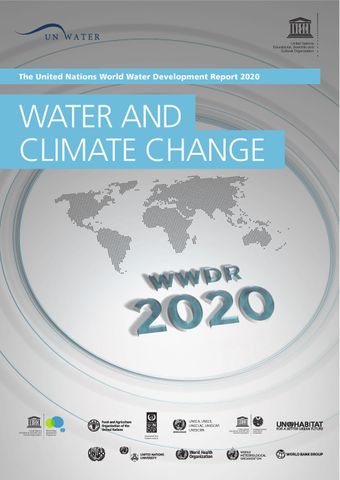
The United Nations World Water Development Report 2020
Water and Climate Change
مارس ٢٠٢٠
كتاب
The 2020 edition of the WWDR titled ‘Water and Climate Change’ illustrates the critical linkages between water and climate change in the context of the broader sustainable development agenda. Supported by examples from across the world it describes both the challenges and opportunities created by climate change and provides potential responses – in terms of adaptation mitigation and improved resilience – that can be undertaken by enhanci Read More
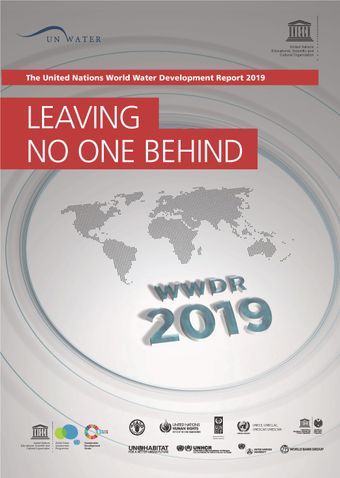
The United Nations World Water Development Report 2019
Leaving No One Behind
أكتوبر ٢٠١٩
كتاب
The 2019 Report seeks to inform policy and decision-makers inside and outside the water community how improvements in water resources management and access to water supply and sanitation services are essential to overcoming poverty and addressing various other social and economic inequities. In an increasingly globalized world the impacts of water-related decisions cross borders and affect everyone. Extreme events environmental degradatio Read More
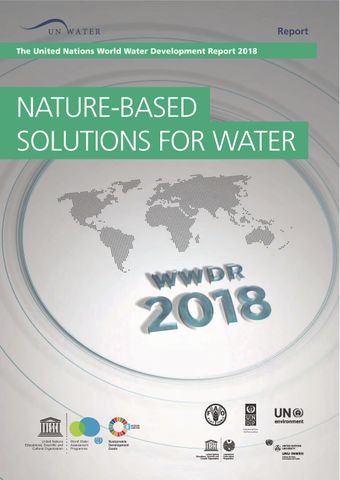
The United Nations World Water Development Report 2018
Nature-based Solutions for Water
أكتوبر ٢٠١٩
كتاب
The 2018 edition of the World Water Development Report seeks to inform policy and decision-makers inside and outside the water community about the potential of nature-based solutions (NBS) to address contemporary water management challenges across all sectors and particularly regarding water for agriculture sustainable cities disaster risk reduction and water quality. Water management remains heavily dominated by traditional human-built (i Read More
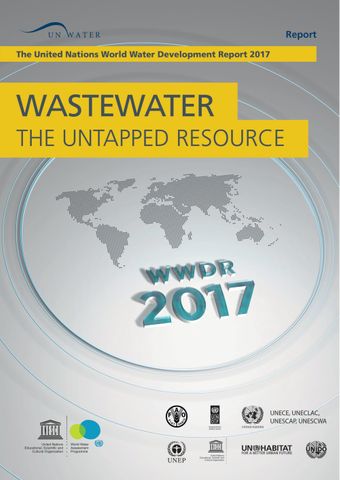
The United Nations World Water Development Report 2017
Wastewater - The Untapped Resource
ديسمبر ٢٠١٧
كتاب
The 2017 edition of the United Nations World Water Development Report entitled “Wastewater: The Untapped Resource” demonstrates how improved wastewater management generates social environmental and economic benefits essential for sustainable development and is essential to achieving the 2030 Agenda for Sustainable Development. In particular the Report seeks to inform decision-makers government civil society and private sector about t Read More
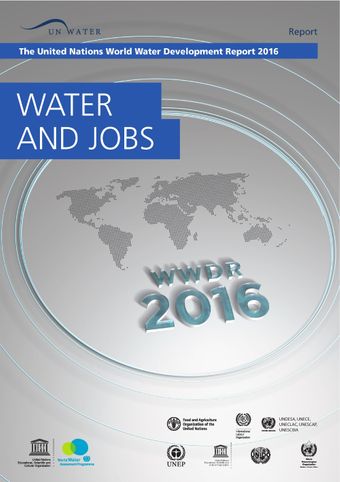
The United Nations World Water Development Report 2016
Water and Jobs
مارس ٢٠١٦
كتاب
Three out of four of the jobs worldwide are water-dependent. In fact water shortages and lack of access may limit economic growth in the years to come according to the 2016 United Nations World Water Development Report Water and Jobs which was launched on 22 March World Water Day in Geneva. From its collection through various uses to its ultimate return to the natural environment water is a key factor in the development of job opportunities ei Read More
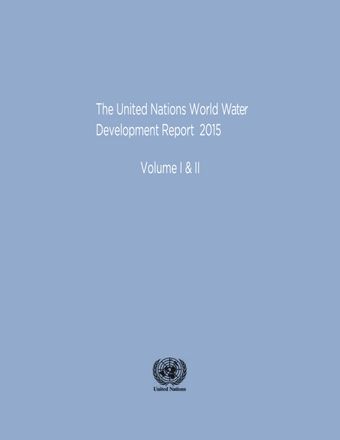
The United Nations World Water Development Report 2015
Volume I - Water for a Sustainable World; Volume II - Facing the Challenges, Case Studies and Indicators
يناير ٢٠١٥
كتاب
The 2015 edition of the United Nations World Water Development Report (WWDR 2015) titled Water for a Sustainable World was launched at the official celebration of the World Water Day on March 20. The WWDR 2015 demonstrates how water resources and services are essential to achieving global sustainability. Taking account of economic growth social equity and environmental sustainability the report’s forward-looking narrative describes h Read More
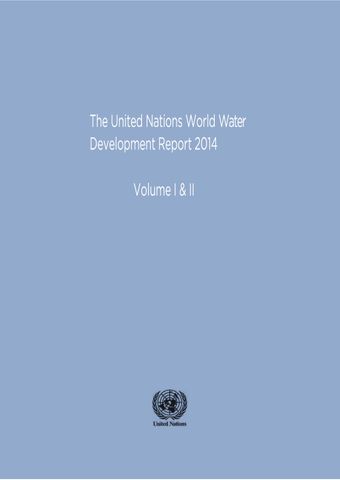
The United Nations World Water Development Report 2014
Volume I - Water and Energy; Volume II - Facing the Challenges, Includes Data and Indicators Annex
أبريل ٢٠١٤
كتاب
Water and energy are closely interconnected and highly interdependent. Choices made and actions taken in one domain can greatly affect the other positively or negatively. Trade-offs need to be managed to limit negative impacts and foster opportunities for synergy. Water and energy have crucial impacts on poverty alleviation both directly as a number of the Millennium Development Goals depend on major improvements in access to water sanitatio Read More
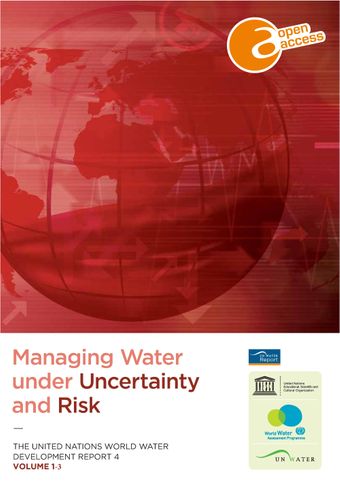
The United Nations World Water Development Report 2012
Volume I - Managing Water under Uncertainty and Risk; Volume II - Knowledge Base; Volume III - Facing the Challenges
فبراير ٢٠١٢
كتاب
The fourth edition of the World Water Development Report (WWDR4) ‘Managing Water under Uncertainty and Risk’ is a comprehensive review of the world's freshwater resources and seeks to demonstrate among other messages that water underpins all aspects of development and that a coordinated approach to managing and allocating water is critical. The Report underlines that in order to meet multiple goals water needs to be an intrinsic element in deci Read More
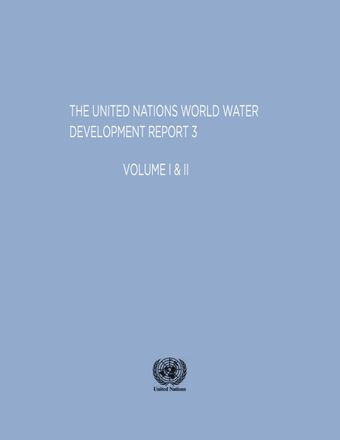
The United Nations World Water Development Report 2009
Volume I - Water in a Changing World; Volume II - Facing the Challenges
يونيو ٢٠٠٩
كتاب
The Third edition of the United Nations World Water Development Report (WWDR3) “Water in a Changing World” was officially launched on March 16 2009 at the 5th World Water Forum in Istanbul Turkey. The WWDR3 builds on the work of previous studies including the two previous WWDRs “Water for People Water for Life” (WWDR1) presented at the 3rd World Water Forum in Japan in 2003 and “Water: A Shared Responsibility” (WWDR2) presented in 2006 at t Read More
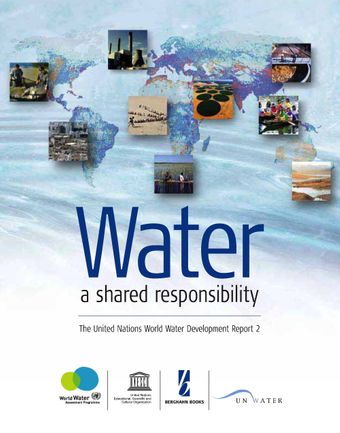
The United Nations World Water Development Report 2006
Water - A Shared Responsibility
مايو ٢٠٠٦
كتاب
The Report builds on the conclusions of the 1st United Nations World Water Development Report 'Water for People Water for Life' published in 2003. It presents a comprehensive picture of freshwater resources in all regions and most countries of the world as it tracks progress towards the water-related targets of the UN Millennium Development Goals and examines a range of key issues including population growth and increasing urbanization cha Read More
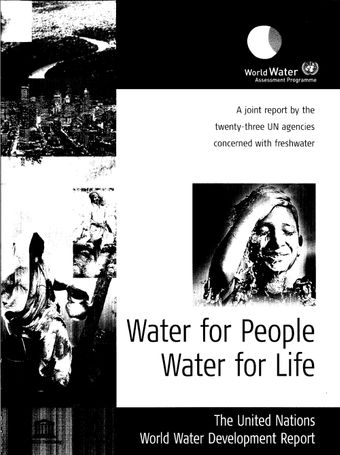
The United Nations World Water Development Report 2003
Water for People, Water for Life
أبريل ٢٠٠٣
كتاب
WWDR1 is targeted to all those involved in the formulation and implementation of water-related policies and investment strategies as well as to professionals at all levels. Although it offers a broad global picture it focuses particularly on the situation in developing countries where the need for better infrastructure and governance is highest. With this report WWAP is aiming to show where systems are failing and to provide the information needed for efficient Read More
No more items...
